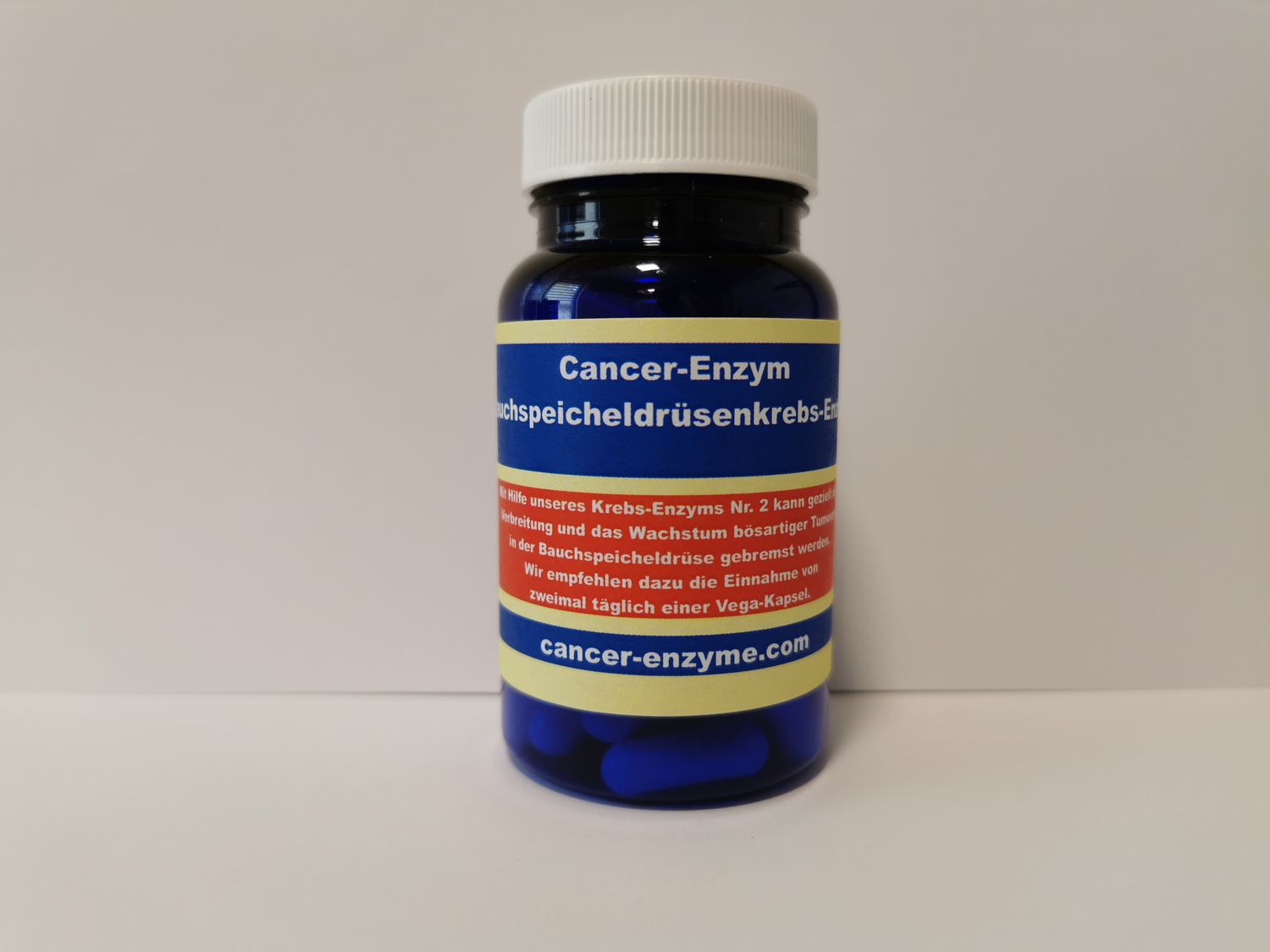Cancer enzyme in pancreatic cancer
65,12 €
Free shipping within the EU
Shelf life at least 24 months 100 capsules
Crowd
In stock
Product Details
Alternative Cancer Therapy for Pancreatic Cancer
Our researchers in the Japanese city of Nagoya have discovered an enzyme to combat pancreatic cancer.
Pancreatic cancer, known professionally as pancreatic carcinoma, is a malignant tumor that affects the pancreas. Patients suffering from pancreatic cancer complain of the following non-specific symptoms:
Weight loss in approximately 90 percent of all cases
Abdominal or back pain in approximately 80 percent of patients
Jaundice (approximately 70 percent)
Loss of appetite and nausea (40–50 percent)
New-onset diabetes mellitus (15 percent)
Vomiting (15 percent)
Thrombosis: blockage of body veins by blood clots (27 percent)
What are the causes and risk factors?
Certain factors and lifestyle circumstances can increase the risk of developing the disease:
Smoking
Obesity
Chronic pancreatitis (recurrent inflammation of the pancreas)
Type 2 diabetes
Family cancer risk
Older age
The pancreas has two tissues, the exocrine and the endocrine, to perform its functions. In the exocrine tissue, the glandular cells produce digestive juices, which are transported to the intestine via the pancreatic ducts. The endocrine tissue contains hormone-producing cells that produce hormones such as insulin. These hormones are needed to regulate blood sugar levels. Tumors can form in any of these tissues.
With the help of our cancer enzyme, the spread and growth of malignant tumors in the pancreas can be specifically slowed.
We recommend taking one capsule twice daily.
Save this product for later
Customer reviews
Reviews only from verified customers
No reviews yet. You can buy this product and be the first to leave a review.
Cancer enzyme in pancreatic cancer
Display prices in:EUR
